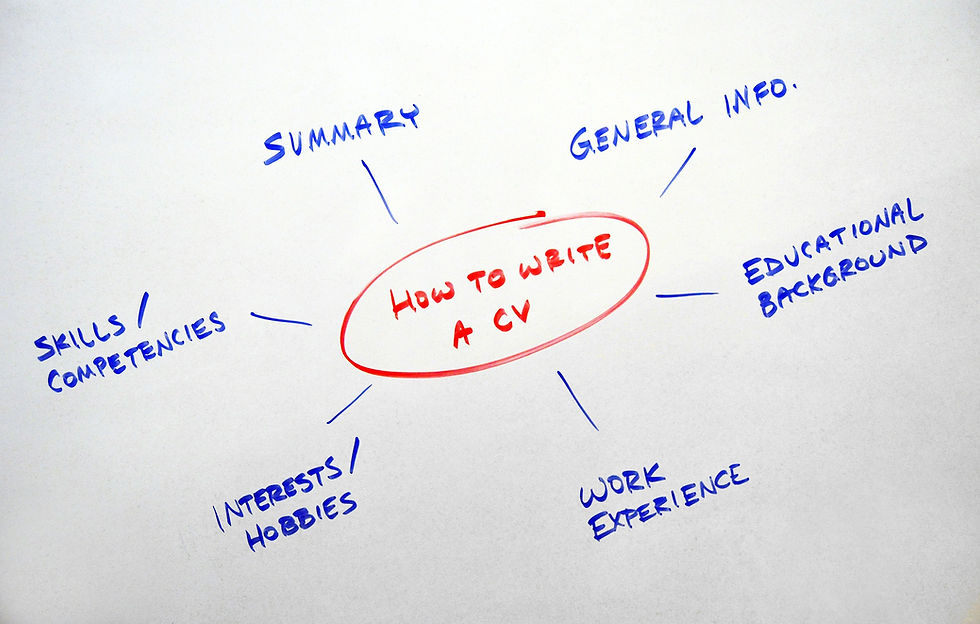Tips To Get A Student Job In Dublin
- Andrew Donnelly
- May 15, 2018
- 6 min read
Updated: Oct 15, 2018
Every student lives the experience of going to college in a different way. Someone might say: “They were the best years of my life!” and yet someone would say: “I would rather walk on a field of Lego bricks with my bare feet than going back to that madhouse.” Nevertheless, there is a common denominator to all university paths: expensiveness. And there is a common denominator to all university students: poverty.
Rental accommodation in Dublin is insanely expensive and bodes to raise even more. Colleges’ tuition fees are steadily increasing year after year. And then there’s food, transports, bills not to mention books and university equipment.

For this reason, many students feel the urge to find a job in order to survive these frantic years of allnighters and junk food. However, getting a job is very far from being easy, especially for a student without any working experience on the CV.
To help you find a student job in Dublin, we gathered some of the best suggestions on this blog post, so if you want to score that interview read on and impress that employer!
How To Write A CV Without Previous Experience

The first thing you should think of is writing your CV. It’s your main weapon to grab the attention of the employer, so make sure you’re spending enough time on drafting an effective and compelling resume.
If you’ve never worked in your life and you’re planning to add fake experiences on your CV, don’t do it. You’ll be unmasked at the first question. What you should try to do, instead, is to show a positive attitude and the willingness to learn and try to sell well what you’ve done so far. For example, voluntary work, playing in a band or writing for your school journal are all meaningful extracurricular activities that speak of your sense of responsibility and willingness to engage. Even though you didn’t get paid, it doesn’t mean you didn’t learn anything. And even if you didn’t, there are a lot of buzz words that can really galvanise an employer, such as conflict resolution, self-motivation, ability to work under pressure, decision making, teamwork, problem solving, flexibility and so on. Pile them up under each activity and you’ll make an interviewer's day.
When adding experiences, don’t limit yourself at writing employer, dates and location. You should put down a detailed bullet list of your tasks and responsibilities. Look at this fictional example:
Ken Hurt
English Teacher (volunteering)
Irish Immigration Association
12-05-2017 - 06-04-2018
I was an English teacher.
I was a great English teacher.
Pearl Button
English Teacher (volunteering)
Irish Immigration Association
12-05-2017 - 06-04-2018
Stimulated the listeners’ attention with a unique teaching style and aroused their curiosity to transfer knowledge:
Encouraged students to observe, question, discover and investigate in order to engage them in their learning.
Communicated clearly, effectively and professionally in a manner that every student fully understood.
Earned many compliments for the quality and creativity of classroom teaching, lesson plans and instructional materials used in teaching.
I became increasingly proficient and self-confident in my role. I started to take initiatives and to take on responsibilities.
Dealing with students of different nationalities coming from different cultures, I showed a great capacity of adaptability and open-mindedness.
Who would you hire? Ken Hurt or Pearl Button? They did the exact same job, achieved the same results, but one is going to catch the interviewer’s interest and the other one is going to be discarded. Employers read hundreds of CVs every day and are just looking for an excuse to throw your resume in the bin. So don’t give them any.
Even a long CV could be a liability. Think about it. You received 60 applications and you have to go through all of them. You open Pearl Button’s resume, which takes two minutes to download because Pearl inserted a high resolution photo of her smiling self, and you discover that it’s three pages long. You read only the first page because you can’t be bothered to learn about Pearl Button’s life story but you don’t find any relevant information, which was instead on the second page. And Pearl Button is screwed.
How To Write A Cover Letter With No Work Experience

After the first selection round, the CV battle, the war continues with the cover letter.
We know, you would rather remove calluses from runners’ feet than write a motivational letter.
Cry out at the stars, run naked on the prairie, lash out against the order of things, but you still have to do it. Why? Because most employers require it. If they didn’t manage to get rid of you with the resume, they will try to find a reason to in your letter. But you’ll be ready! Follow these easy steps and you’ll be golden.
First, introduce yourself and specify the position you’re seeking. Include all the key information in the first paragraph because that’s often the only thing they look at.
Then, talk about you hobbies and abilities. Try to quantify your achievements and increase your credibility, possibly with real data, and to use the keywords that you found in the ad. Read this example: “I was the leader of my school football team and I managed to set objectives and meet them successfully, give motivational performance appraisals, settle disputes among players and revealed to have great teamwork and communication abilities. Since I became the team leader, performances increased by 15% and we won the county league for two years in a row.” Better than “I played football for two years”, doesn’t it?
Lastly, include a call to action to induce the recruiter to contact you. Something like “feel free to write me for any further clarifications about my CV” or “call me any time after 12am, I’ll be happy to respond to your queries.”
Remember, your cover letter should not be a long version of your CV. It should be an enticing, even emotional, narrative about your accomplishments, dreams and aspirations. Turn you life in a Steve Job kind of story a move them to tears!
Where To Look For A Student Job

Now that you have sorted out your resume and motivational letter, you can start looking for a job. Here is a list of employment websites where it’s easy to find student jobs, part-time jobs and internships:
Indeed is probably the top job search engine in the world. As it features thousands of job ads, you might want to narrow down your search typing “No Experience Student” in the search bar and limiting your quest to Dublin. You can also choose the distance from your location and the job type (full-time, part-time, internship etc.).
Glassdoor is another international job site where you can also see the reviews left by former employees. Even here, you can narrow down the search results typing “no experience” or “student job” in the bar.
Irishjobs is an employment-related platform for people looking for a job in Dublin, Cork and Galway. If you set up the “similar jobs alert” they send you completely unrelated positions, but, sometimes, you find jobs that do not appear in other employment search engines.
On Gumtree you can post a free ad about yourself. It’s useful especially if you want to be a freelancer or give private lessons.
Top Language Jobs is a website featuring jobs requiring at least an additional language. It’s very useful if you want something requiring your language abilities.
Go For The Job Related To Your Major
There’s nothing wrong with being a waiter or a dishwasher. Every job has its own dignity. However, listen to this advice from the very deep of our hearts: look for a job that has something to do with what you’re studying. Not only because you will gain the necessary experience to find a well paid position after you have graduated, but also because it will help you understand if you really like the job and if you’re suitable for it.
Studying something and working with it can be completely different things. You can attend law school for years and then discover that you are not cut out to be a lawyer. You can love studying the human body and how to cure it and then find out that you faint when you see blood. There are extreme examples. Nonetheless, it’s important to understand if you’ve taken the right path in advance to have time to go back on your steps and take another one in case it was the wrong one.
In our experience - because we’ve been students as well, just before World War II - it’s wiser to hold on a little longer and wait for the right occasion. Those ads looking for a 20-years-old graduate with 10 years experience won’t find the living-on-earth god they’re searching and will contact you back in a week’s time. Be reassured, there is job waiting for you out there. You just need time and patience.
In the meanwhile, be smart. You can cut expenses in other ways. Read our blog post on how to find an affordable accommodation and where to get student discounts in Dublin and learn how.
That’s it. We’ve passed onto you our expertise on how to fool an interviewer. However, if you have questions or know some additional tricks to share with the other students, please let us know. Information is gold. In the meanwhile, happy job hunting!






If you’re frustrated with repetitive job applications, LiftmyCV is a platform worth trying. It’s an advanced automated job search tool powered by AI that tracks the latest roles, submits applications automatically, and builds customized resumes and cover letters tailored for every listing. Since using it, I’ve seen more success with ATS systems, and the service integrates with eight leading job boards, including LinkedIn, Monster, and Wellfound. You can test it free, with no commitment or credit card needed. Instead of spending hours each week pasting the same data into dozens of forms, you can let LiftmyCV take care of the repetitive tasks. The AI adapts every resume and cover letter to align with each posting, helping your applications appear more…